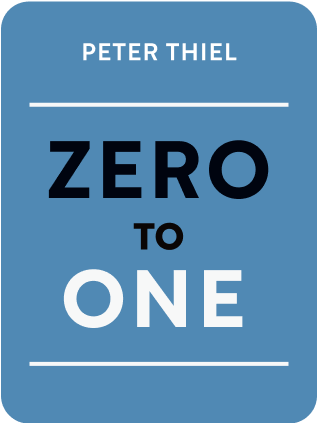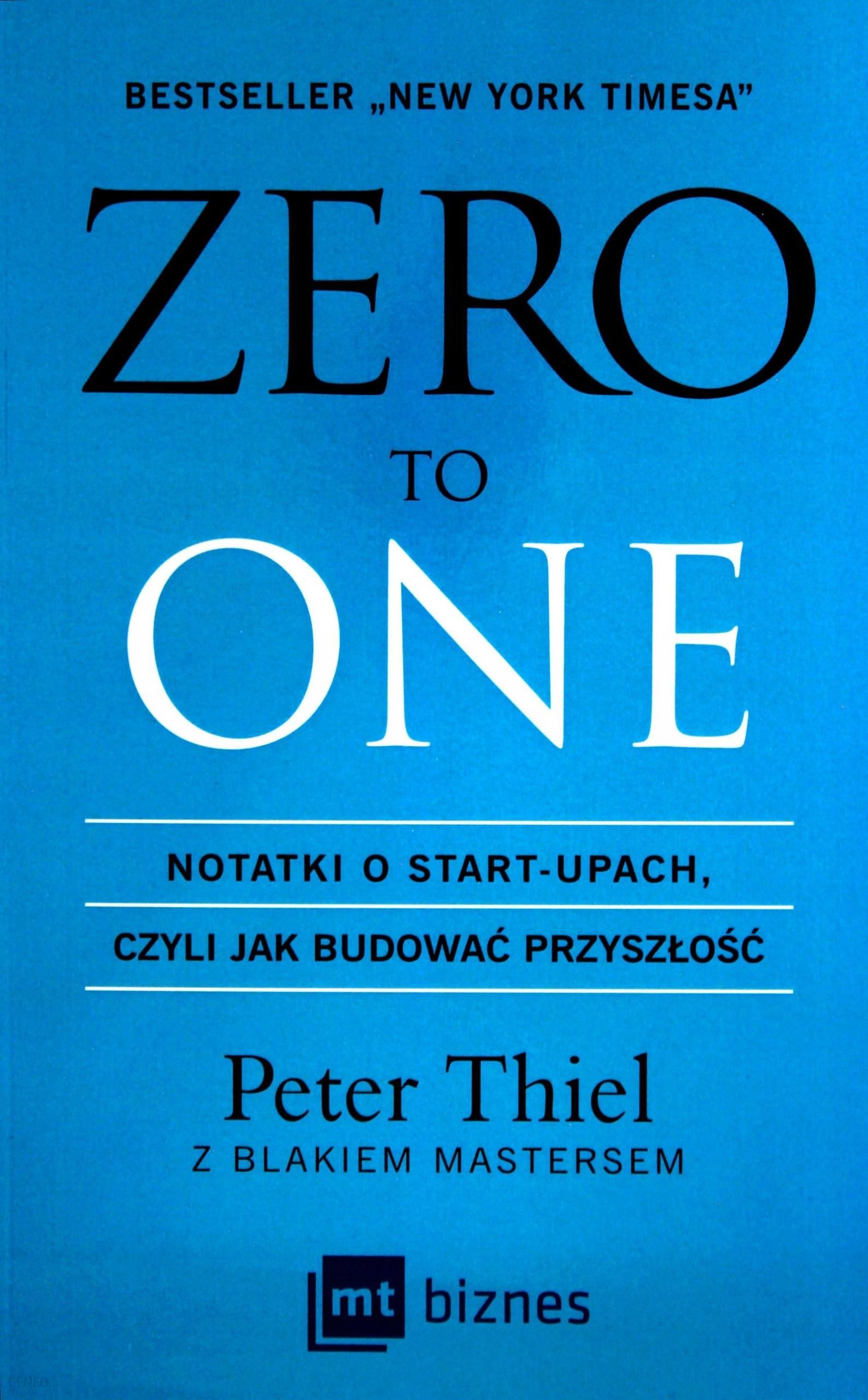

Planning an escape from competition is essential for every business and every individual, not just for technology startups. Zero to One shows how to quit the zero-sum tournament by finding an untapped market, creating a new product, and quickly scaling up a monopoly business that captures lasting value. In today's post-internet bubble world, conventional wisdom dictates that all the good ideas are taken, and the economy becomes a tournament in which everyone competes to reach the top. They will escape competition altogether, because their businesses will be unique. Tomorrow's champions will not win by competing ruthlessly in today's marketplace. Zero to One is about how to build these companies. The most valuable companies of the future will make vertical progress from "0 to 1," creating entirely new industries and products that have never existed before. It's true that the world can get marginally richer by building new copies of old inventions, making horizontal progress from "1 to n." But true innovators have nothing to copy. Progress has stalled in every industry except computers, and globalization is hardly the revolution people think it is.


"Thiel starts from the bold premise that we live in an age of technological stagnation, even if we're too distracted by our new mobile devices to notice. Ask not, what would Mark do? Ask: WHAT VALUABLE COMPANY IS NOBODY BUILDING? ". The single most powerful pattern I have noticed is that successful people find value in unexpected places, and they do this by thinking about business from first principles instead of formulas. It draws on everything I've learned directly as a co-founder of PayPal and Palantir and then an investor in hundreds of startups, including Facebook and SpaceX. Zero to One is about how to build companies that create new things. The act of creation is singular, as is the moment of creation, and the result is something fresh and strange.

But every time we create something new, we go from 0 to 1. It's easier to copy a model than to make something new: doing what we already know how to do takes the world from 1 to n, adding more of something familiar. If you are copying these guys, you aren't learning from them. And the next Mark Zuckerberg won't create a social network. The next Larry Page or Sergey Brin won't make a search engine. The next Bill Gates will not build an operating system. "EVERY MOMENT IN BUSINESS HAPPENS ONLY ONCE.


 0 kommentar(er)
0 kommentar(er)
